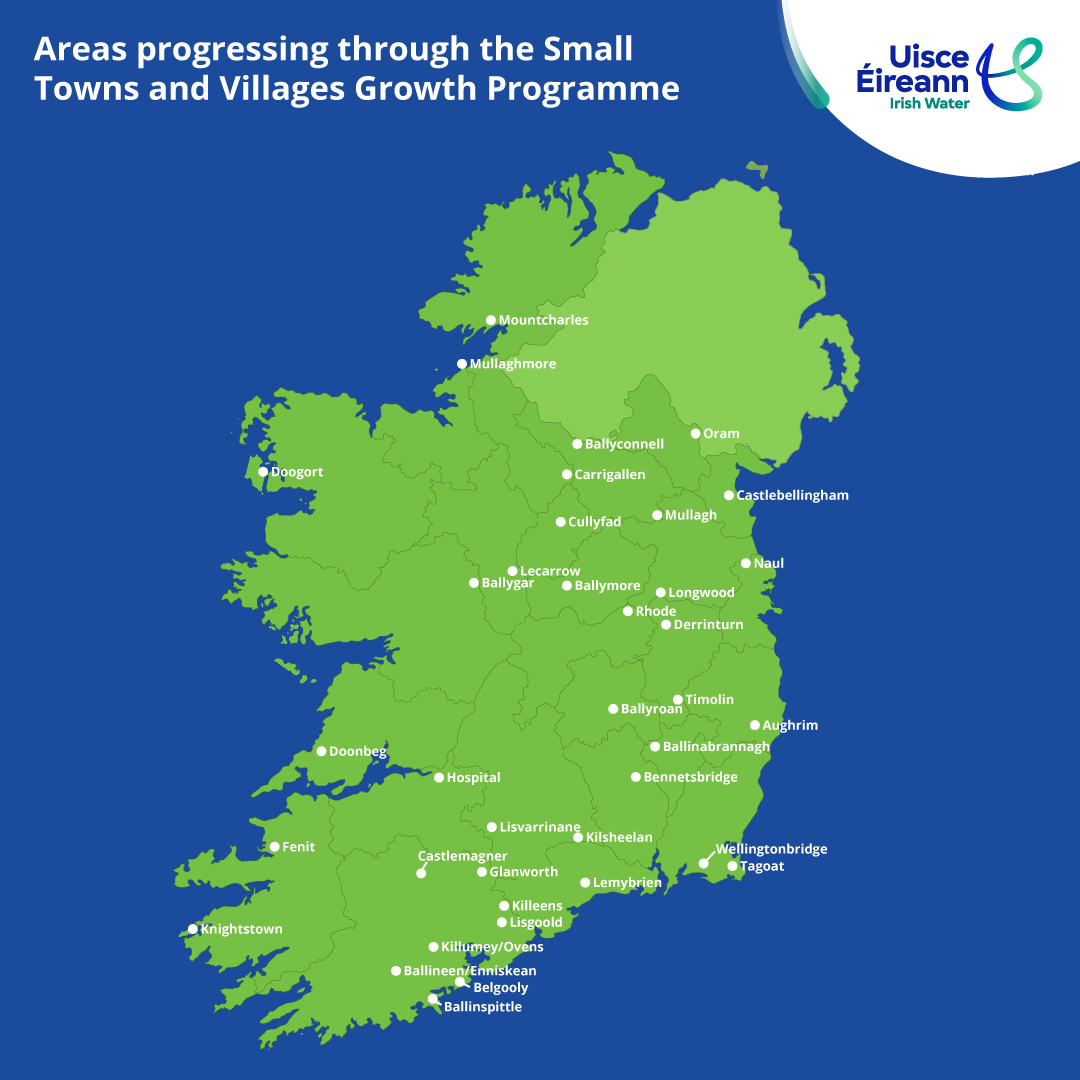Small Towns and Villages Growth Programme
A national programme to cater for growth in smaller towns and villages with existing Uisce Éireann infrastructure.
About this Programme
This Programme is designed to support:
- Growth and development in towns and villages throughout the country, while protecting the environment and ensuring a continued supply of safe drinking water
- National Policy Objectives and National Strategic Outcomes under the National Planning Framework, by ensuring that essential infrastructure is provided within each Local Authority area
- Investment in accordance with County Development Plans
A number of investment cycles will be required to deliver additional capacity in areas that are already identified and progressing under the Programme. We plan to continue the Programme into the next investment period (2025-2029) and beyond, subject to the regulatory approvals process.
How does the Programme work?
- We first identified towns and villages that qualified for funding under the Programme. Local Authorities were then asked to rank these towns and villages in order of priority.
- We have been working through this list of towns and villages, and we asked the Local Authorities to review the ranking of towns and villages in their jurisdictions again in 2023.
- To date, 39 projects have been confirmed to be delivered through the Programme nationally and an additional 11 towns and villages will also be delivered through alternative Uisce Éireann programmes. These projects are all being progressed through the various Uisce Éireann Project Stages, see below for more information.
- Information on additional projects will be updated regularly on this webpage.
Uisce Éireann Project Stages
The Public Spending Code, published in December 2019, sets out the rules and procedures on expenditure on capital projects across the Irish public service. The Department of Housing, Local Government and Heritage issued the "Water Services Sector Specific Guidelines on the Public Spending Code: Management of Public Investment in Irish Water" on 19 July 2022. As a body in receipt of public funding, we must comply, as appropriate, with the relevant requirements of the Public Spending Code.
The Public Spending Code has a multi-stage approvals process to facilitate the delivery of a capital project and we align our internal approvals process to these project lifecycle stages. The project stages must be adhered to and are subject to procurement, planning, legal and environmental regulations.
While we allocate the necessary funding and resources to projects, it takes a number of years to bring a project through all of these stages.
Small Towns and Villages Growth Programme Funding and Regulation
- The Programme is dependent on funding availability.
- We must demonstrate to our financial regulator, the Commission for the Regulation of Utilities, that we are spending money the right way.
- The progression of projects under the Programme is subject to the necessary internal and external approvals in line with the Public Spending Code and Commission for Regulation of Utilities requirements.
- The rate at which a project progresses is also dependent on levels of complexity and gaining the required statutory consents. Updates on delivery timelines will be provided as the projects progress.
- We intend to continue the Programme in the next and subsequent investment periods, subject to the regulatory and budgetary approvals process.
Information on projects will be updated regularly on this webpage.

